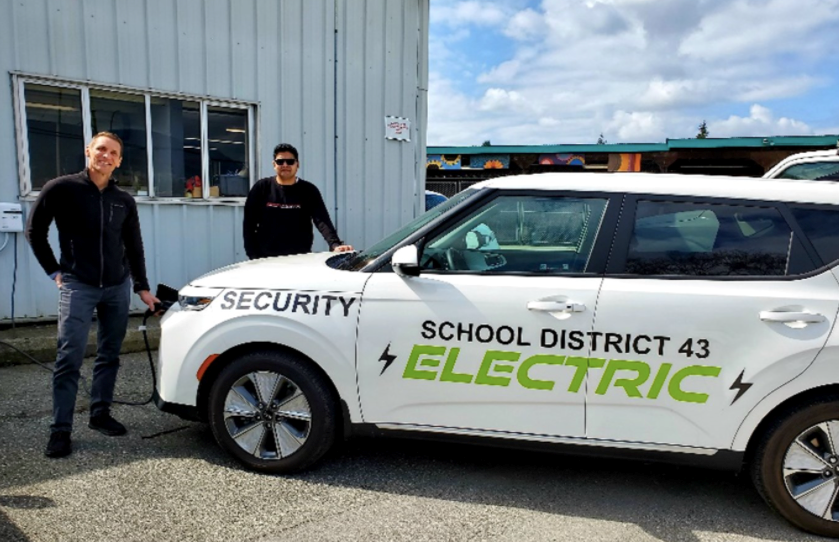The largest civic government organization in the Tri-Cities has labeled climate change a risk, adding more weight to efforts to reduce human impacts on the planet.
Last Tuesday (June 15), School District 43 (SD43) announced it has added climate change to a list of 29 operational risks that the district says must be addressed.
Though still moderate, officials noted dealing with the climate crisis will require investment in energy-efficient equipment and ensure that new or replacement buildings include environmental considerations — initiatives that don’t always come cheap.
Solar is already coming to SD43, as the new Sheffield Elementary school will have a solar array on the roof to provide one-third of its electric power; solar has also been approved for the new Moody Elementary as part of a $37.2-million rebuild of the Port Moody school.
The district is also making headway to electrify its fleet: An electric car has been purchased as a security vehicle, a cost-effective initiative given its $13,000 in annual gas savings, school trustees were told.
As well, electric car chargers have been installed at three Coquitlam and Port Coquitlam schools and the maintenance yard, with two more planned for schools in Port Moody.
In presenting the electric vehicle business case, energy manager Adrian Pettyfer said he hopes that the district “can continue to electrify our fleet.”
The car chargers, for staff use, were paid for with a grant from BC Hydro and CleanBC. But SD43 will charge a fee to use the EV chargers to encourage turnover and make up the investment, trustees were told.
Other initiatives to reduce energy and cut CO2 emissions are less exciting, but perhaps, equally as important.
The district is putting an additive into its boilers to improve efficiency and cut down on its use of natural gas.
EndoTherm, an energy-saving additive for water-based heating and cooling systems, has been added to boilers at four schools, resulting in a cost savings of $2,500 or about 12%.
“We may be recommending it to more schools,” said Pettyfer.
To get more energy-saving ideas, the district has reached out to custodial staff for their suggestions and is bringing students onside by connecting them with like-minded students, on projects such as Green Week, tree planting and an eco-challenge.
But trustees noted there are some challenges with a district as large as SD43, with its 70 facilities and many older buildings.
Coquitlam trustee Jennifer Blatherwick asked how efficient solar panels will be given the climate.
Noting that solar is “going to light up your school [but] it’s not going to heat your school,” Pettyfer acknowledged that there is more “work to do” to be able to store power so it’s available when needed.
Responding to a query about single pane windows, Pettyfer admitted that much of the heat saved with EndoTherm leaks out of old windows but he said replacing them at schools throughout the district is a costly investment.
The sobering information prompted some trustees to acknowledge that dealing with climate change is going to take some effort and money, as schools become more efficient, less-energy intensive and cut greenhouse gasses.
“As we look toward our kids in the next generation, unfortunately they’re going to have some big challenges to solve,” said Port Coquitlam trustee Michael Thomas.





